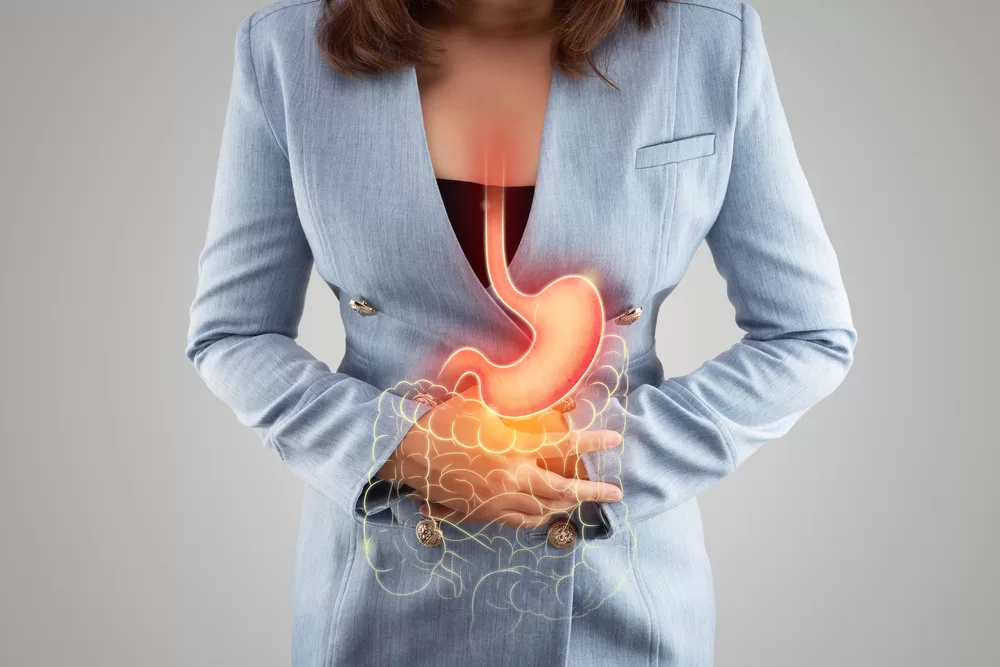CBD is one element that has attracted controversies at the forefront of many medical & recreational debates across the world, side-lining the benefits it offers. Medical marijuana, or cannabis, treats many ailments such as epilepsy, glaucoma, arthritis, and even cancer. Apparently, some new studies suggest it’s efficient in treating Crohn’s disease. According to a study, roughly half a million [1] of the population in the US alone suffer from Crohn’s, and it’s becoming increasingly common. Most live on medication to manage primary symptoms, but living comfortably is challenging. Let’s dig a little more into some information about the disease and how CBD can help!
What is Crohn’s disease?
Crohn’s disease (CD) and ulcerative colitis (UC), commonly referred to as inflammatory bowel disease (IBD), are immunologically mediated inflammatory diseases of the gastrointestinal tract. Studies suggest [2, 3] that CD affects any part of the gastrointestinal tract, including the terminal ileum, colon, and small bowel. About one-third of patients have small bowel involvement; another 20% have only colon involvement, and about 50% have both colon and small bowel involvement. There is no cure for CD, but most patients experience bouts of remission and relapse at unpredictable times. This disease leads to an inferior quality of life.
Inflammation in the digestive tract causes diarrhoea, abdominal pain and weight loss—making daily activities nearly impossible. Symptoms of Crohn’s vary in severity by individual but can include severe fatigue caused by inflammation in the digestive tract.
Despite deep study for decades, ascertaining the root causes of Crohn’s disease is still a mystery. Mental stress & diet are some contributing factors that add an impact to the concerning symptoms. Some recent studies [4] claim that it is likely the genetics and environmental factors that might have a more significant effect on Crohn’s development. Ironically, Crohn’s is seen far more frequently in developed countries as opposed to those under progressive.
In a grown-up adult, the gastrointestinal tract constitutes positive bacteria that help digestion and support the immune system. They are also responsible for “killing” foreign bacteria, fungi or other toxins. For patients who have Crohn’s disease, it’s a different narrative entirely. In people suffering from IBD, these healthy bacteria go unrecognized by the immune system and get treated as toxic bacteria instead. These bacteria cells get pushed out of the blood into the organs, causing soreness & inflammation.
Why Cannabis?
For the last decade, interest in the therapeutic potential of cannabis and its constituents (e.g., cannabidiol) in the management of inflammatory bowel diseases has escalated. In several jurisdictions around the world, cannabis has been increasingly approved for a variety of medical conditions. Cannabinoids have been shown to improve intestinal inflammation by activating the endocannabinoid system and decreasing intestinal inflammation through a particular system [5,6]. However, few randomized controlled trials have demonstrated efficacy in modulating inflammatory disease activity; these trials remain ongoing and need more reliability. Cannabis may be effective in reducing symptoms related to IBD, such as pain or diarrhoea; however, more research is required to determine its reliance as an actual treatment for patients with chronic conditions such as Crohn’s disease and ulcerative colitis.
Cannabis, also known as marijuana, is simply the mixture of the dried flowers cannabis. It is taken orally as smoke, brewed in tea, cooked into dessert foods, or the oil (CBD oil) extracted from the leaves is used as an ointment for topical application. The main active chemical in cannabis is delta-9-tetrahydrocannabinol (THC). THC is highly intoxicating and leaves a recreational effect, which is why it is so highly sought after as a “safe medicine”.
The human body naturally is capable of producing a form of THC called endocannabinoids. However, those who have Crohn’s have a much lower natural THC production. Crohn’s disease patients load up on anti-inflammatory drugs to reduce symptoms, but they only work temporarily. Using cannabis increases the body’s crude production of THC and gives a better chance of fighting inflammation [7, 8].
Does Cannabis Actually Work?
There is a significant interest in the potential therapeutic role of Cannabis in the treatment of inflammatory bowel disease [9]. There are over 500 potentially active compounds within marijuana, with the two best-studied compounds being cannabidiol (CBD) and Δ 9-tetrahydrocannabinol (THC). The latter provides the vast majority of the psychoactive effects of marijuana; the former has been extensively studied for its impact on the endogenous endocannabinoid system. These compounds mitigate their effects through two prominent receptor families within the endocannabinoid system: CB1 receptors, which are found in the brain and enteric nervous system, and CB2 receptors, which are absent in the brain, but present in the enteric nervous system, gastrointestinal epithelial cells, and both macrophages and plasma cells. These compounds mitigate their effects by binding to two classes of cannabinoid receptors in the endocannabinoid system: CB1 receptors, which are found in the brain and enteric nervous system, and CB2 receptors, which are absent in the brain but present in the enteric nervous system, gastrointestinal epithelial cells, and both macrophages and plasma cells. It is through interaction with both of these receptor classes that cannabinoids modulate pain and inflammation.
As opposed to many types of research [10, 11], marijuana use may improve symptoms such as abdominal pain in IBD. As medical and recreational marijuana legalization continues to expand, monitoring utilization rates is crucial for understanding prevalence and perceived benefits. Here is another study [12] highlighting some potential risks of marijuana use among patients with IBD. Despite the improvement in symptoms, marijuana users reported fewer interactions with gastroenterologists and reduced engagement with IBD specialists. Patients also said that they slept better and regained appetite, and other painful symptoms were much more manageable.
Conclusion:
The Crohn’s & Colitis Foundation of America (CCFA) has acknowledged the results of these studies, but more research is needed to accept it as a treatment for IBD. Substantial data from studies show that full spectrum Cannabis Oil can be used to treat all types of cancer by eradicating cancer cells and stopping metastasis. The need for the full spectrum and complete list of cannabis’s healing ingredients means that we cannot simplify it to being merely CBD oil, as cannabis has many components, and CBD is only one. Here are some other documented health benefits of cannabis oil! There have been herbal medicines that can help with pancreatic cancer, and Cannabis Oil Therapy is one of these treatments! At healing oracle, we promote natural methods and treatments that do not alter your body’s system and provide the optimum benefits!
References and Sources:
- https://pubmed.ncbi.nlm.nih.gov/22926499/
- https://pubmed.ncbi.nlm.nih.gov/28601423/
- https://www.ncbi.nlm.nih.gov/books/NBK436021/
- https://www.ncbi.nlm.nih.gov/pmc/articles/PMC2980818/
- https://pubmed.ncbi.nlm.nih.gov/32149543/
- https://www.ncbi.nlm.nih.gov/pmc/articles/PMC7182098/
- https://www.ncbi.nlm.nih.gov/books/NBK224384/
- https://www.ncbi.nlm.nih.gov/pmc/articles/PMC2828614/
- https://pubmed.ncbi.nlm.nih.gov/30358848/
- https://pubmed.ncbi.nlm.nih.gov/23648372/
- https://pubmed.ncbi.nlm.nih.gov/28349233/
- https://academic.oup.com/crohnscolitis360/article/2/2/otaa015/5821009
Love and Light
The Healing Oracle Team
Please join our growing numbers on MeWe: Healing Oracle
Also join us on Twitter | YouTube
Global Petition
Please sign our global petition against enforced vaccinations The intention of this petition is to present 5 million signatures to each President, Prime Minister, Health Minister and heads of state worldwide.
Vaccines are a global problem and need to be tackled on a global level.
If we stand as one, we have a chance of saving the children of the future.

